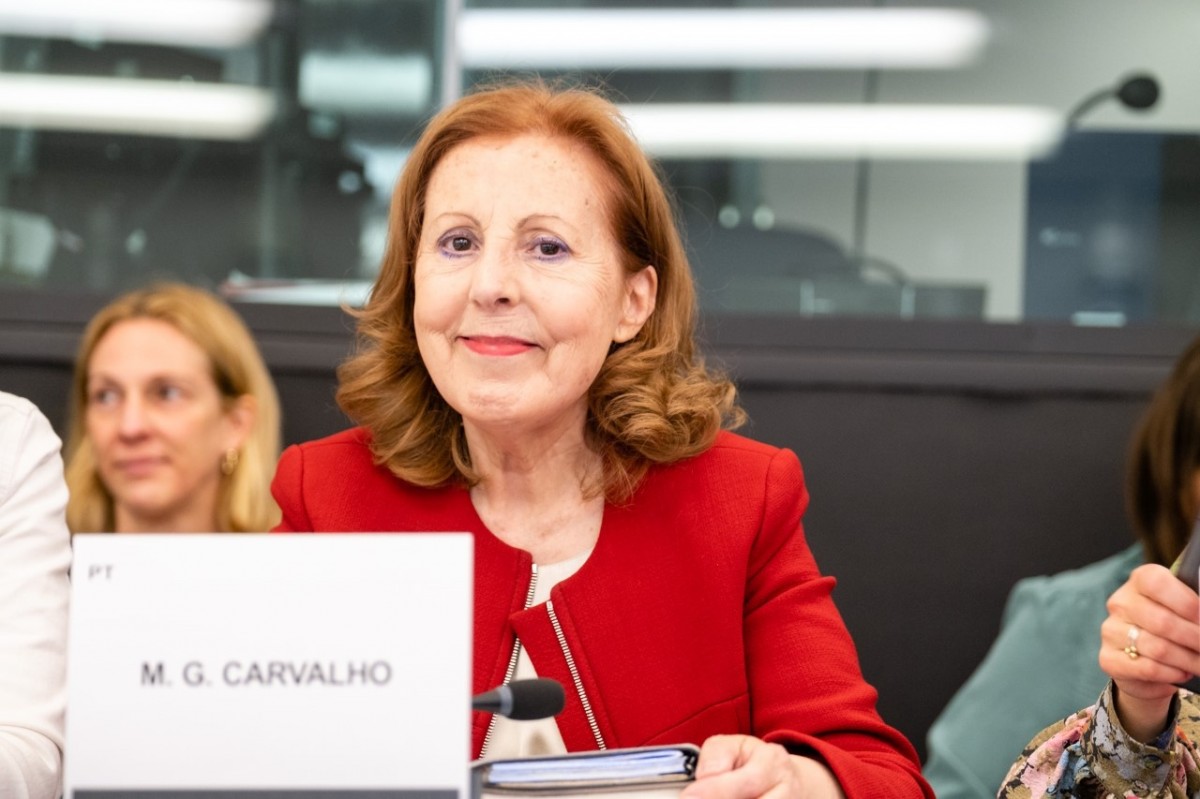If Europe is serious about helping the 30 million people suffering from rare diseases, more needs to be done to support research and innovation for new drugs and therapies says Maria da Graça Carvalho (EPP,PT) , member of the Parliament's ITRE commitee and campaigner on rare diseases.
In normal circumstances, it is natural to expect an adequate level of response to a health crisis affecting nearly 30 million Europeans. However, this is still not the case with rare diseases, since there are so many of them, and because of the relatively small number of individuals affected by them, rare diseases are very hard to handle.
Developing new drugs and therapies requires time and large financial investments. Multiply that by hundreds of different diseases and it becomes clear why so many patients are still waiting for the solutions that would allow them to live longer and healthier lives.

Europe must strengthen cooperation in Research and Innovation at all levels: globally, with other parts of the world, between European and national institutions, between Member States, and between the public and private sectors
However, this is not a lost cause, but quite the opposite! There are ways of dealing with these obstacles. Furthermore, we have evidence of the dramatic improvements that are achievable with the right strategies. Cooperation and consistency are the keywords.
The first priority is to ensure that there is enough public funding at both the European and national level, to support research and innovation for the development of new drugs and therapies. As rapporteur of the Horizon 2020 framework programme report, I was honoured to highlight the subject of rare diseases, but we need to go further.
The second priority is to create incentives for industry to engage in this effort. This is what I tried to do as rapporteur for the new generation of partnerships under Horizon Europe, specifically as part of the Innovative Health Initiative.
The Orphan Medicinal Products Regulation is perhaps the best example of actively seeking the engagement of the private sector. Since the introduction of this regulation, twenty years ago, the number of available orphan drugs rose from only eight to two hundred.
Thirdly, Europe must strengthen cooperation in Research and Innovation at all levels: globally, with other parts of the world, between European and national institutions, between Member States, and between the public and private sectors. This is the only way to achieve the scale necessary to address this challenge.
The use of Health data will also be an important part of this process. Presently, even inside individual Member States, the lack of communication and exchange of information between different entities is a clear obstacle to the development of better solutions for patients. As the famous Latin motto says, “Et Pluribus Unum”, Out of many, one. Rare diseases and the needs of 30 million Europeans living with them must be regarded as one specific challenge to be faced by all of us. If there is a lesson learned from the COVID-19 pandemic, and our common response to it, it is the fact that we are much more effective when we act as a true Union.
The COVID-19 pandemic has exposed the importance of resilient healthcare systems in Europe and has shown what can be achieved when we collaborate with a sense of urgency to solve health challenges says Reda Guiha, Regional President, International Developed Markets (IDM), Pfizer Rare Disease.
With rare diseases affecting more than 30 million European citizens, the EU’s Pharmaceutical Strategy has highlighted this is an area of significant need. The necessity to tackle rare diseases is already pushing scientific innovation. The Alliance for Regenerative Medicine predicts that from 2025, 10 to 20 cell and gene therapies will be approved every year. Therefore, we must invest in advancing gene therapy now, so that health systems are equipped to facilitate access to this ground-breaking technology for patients with rare genetic diseases.
Aligned with Europe’s fundamental value of access to medicines for all, Pfizer’s ambition is to leave no rare disease patient behind. We believe the way to do this is by placing the patient at the centre of European health policy reform. To achieve this goal, action is needed in four key areas.

To leave no rare disease patient behind, we must place the patient at the centre of European health policy reform
Firstly, open and early dialogue is essential if we are to overcome access, infrastructure, and capacity bottlenecks. Rare disease patients do not have time to wait. For example, in Duchenne muscular dystrophy (DMD) we say, ‘time is muscle’, as speed of access could mean the difference between walking or needing a wheelchair. DMD is a rare genetic disorder affecting boys and characterized by progressive muscle degeneration and weakness. The impact this has for these boys, their families and society cannot be overestimated.
Secondly, gene therapies are not expected to be available in all European countries – or in all regions of a country – so governments must also prepare for movement of rare disease patients. We encourage Member States and EU institutions to identify a comprehensive solution for cross-border and cross-region patient mobility, to maximize the opportunity for eligible patients to get the treatment they need, no matter where they live.
Pfizer not only wants to encourage this but is also willing to be a partner to identify cross-border mobility and funding solutions, coordinate regulatory and payer requirements across different countries, and support data sharing and essential long-term patient tracking mechanisms.
Thirdly, the potential one-time approach of gene therapy requires a change in the way we think about affordability and may necessitate shifting away from the traditional ‘pay-per-prescription’ template. Novel reimbursement approaches for gene therapy include pay-for-performance (response to treatment) value-based agreements and pay-over-time financial models. The goal is to allow payers to manage clinical uncertainty, budget impact, and sustainability of the health care system, while providing recognition of the potential long-term value and innovation being delivered for many rare diseases.
Lastly, urgent investment and collaboration is needed to transform Europe into an environment where research and development in rare diseases can thrive at scale. Therefore, Pfizer supports the development of a formalised public�private partnership to harness EU expertise and create an ecosystem that encourages the development of innovative therapies, particularly for under-served rare diseases.
As the pace of scientific innovation continues to build momentum, policy change at both European and the national level is crucial. We must continue to invest in innovation, improve accessibility to the best possible treatments and services and solve for affordability challenges. Only then can we deliver on our promise to the patients we strive to serve.

Science Will Win explores the fascinating science, policy, and humanity which is shaping the future of healthcare and transforming patients’ lives for the better. Hosted by Adam Rutherford, geneticist and Honorary Fellow at University College London, our first miniseries takes listeners on a journey behind the science of gene therapy; the next generation of medicines bringing new possibilities for patients living with rare genetic diseases. To listen to the series on your preferred podcast platform, see further information here.
This content was commissioned by Pfizer and produced by Dods Impact
Sign up to The Parliament's weekly newsletter
Every Friday our editorial team goes behind the headlines to offer insight and analysis on the key stories driving the EU agenda. Subscribe for free here.